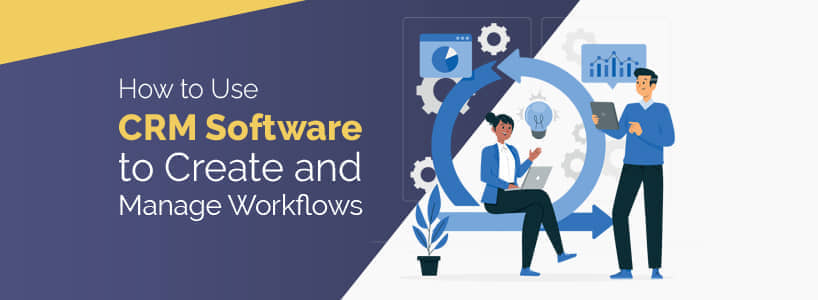Customer Relationship Management (CRM) software is a powerful tool that goes beyond simply storing contact information. Its true potential lies in streamlining your business processes and boosting efficiency. A key feature that unlocks this potential is workflow automation.
What are CRM Workflows?
CRM workflows are automated sequences of actions triggered by specific events within the CRM system. Think of them as "if-this-then-that" recipes that eliminate repetitive tasks and ensure a consistent customer experience.
Why Use Workflows?
The benefits of using CRM workflows are numerous:
- Increased Productivity: Automating repetitive tasks frees up your team to focus on more strategic work.
- Improved Consistency: Workflows ensure everyone follows the same process, leading to a more consistent customer experience.
- Reduced Errors: Automating tasks minimizes the risk of human error in data entry or following procedures.
- Faster Sales Cycles: Streamlining lead nurturing and follow-ups can significantly shorten your sales cycle.
- Enhanced Customer Satisfaction: Timely communication and efficient service delivery lead to happier customers.
Creating and Managing Workflows in CRM Software
The specific steps for creating workflows will vary depending on your chosen CRM platform. However, the general process follows these steps:
- Define Your Objective: What do you want to achieve with the workflow? Is it lead nurturing, on-boarding new customers, or managing support tickets?
- Identify Triggers: What event should initiate the workflow? This could be a new lead being created, a deal stage changing, or a customer submitting a support ticket.
- Set Up Actions: What actions should happen when the trigger fires? This could include sending an email, assigning a task to a team member, or updating a customer record.
- Test and Refine: Once you've built your workflow, test it thoroughly to ensure it functions as intended. Make adjustments as needed and monitor its performance over time.
Common Workflow Examples
Here are some examples of workflows you can create in your CRM Software:
- Lead Nurturing Workflow: When a new lead is created, the workflow can automatically send a welcome email, schedule follow-up tasks, and assign the lead to a sales representative.
- Sales Process Automation: As a deal progresses through different stages, the workflow can trigger automated email sequences, generate quotes, and schedule meetings.
- Customer Onboarding Workflow: When a new customer signs up, the workflow can send a welcome email, schedule a training session, and set up automated renewal reminders.
- Customer Support Ticket Management: When a customer submits a support ticket, the workflow can automatically route it to the appropriate team member, send a confirmation email, and track the resolution process.
Choosing the Right CRM for Workflow Automation
Not all CRM platforms offer the same level of workflow automation. When choosing a CRM, consider features like:
- Visual Workflow Builder: A drag-and-drop interface makes it easy to create and manage workflows without technical expertise.
- Pre-built Workflows: Many CRMs offer pre-built templates for common workflows, saving you time and effort.
- Conditional Logic: The ability to add conditional logic allows you to create more complex workflows with branching paths based on specific criteria.
By leveraging CRM software's workflow automation capabilities, you can streamline your business processes, improve efficiency, and deliver a superior customer experience.
